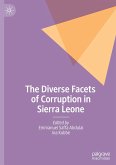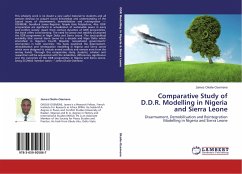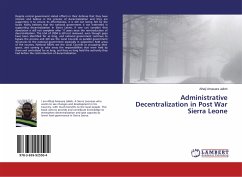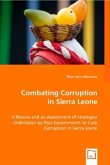Over the last two decades the frequency of humanitarian interventions in Africa has increased. The British military intervention in the Sierra Leonean civil war in the early 2000s is often cited as an example of successful intervention and solidified Security Sector Reform (SSR) as a key component of state-building and development. Yet in-depth analysis of the long-term legacies of this 'successful' intervention are sparse and there remains a notable dearth in research exploring the British involvement from the perspectives of those directly affected. This book provides a novel outlook by exploring micro-level experiences, thus addressing this lacuna through examining the legacies within Sierra Leone and in British foreign policy from an experiential perspective. The Responsibility to Protect (R2P) is used as a framework to draw out implications for global intervention practice, as arguably R2P must also be accompanied by a responsibility to fully understand the legacy of this social phenomenon. By exploring the link between official narratives and the perspectives of those on the ground, a disconnect is exposed and important nuances are identified within the interpretation of the success of the British intervention. Through a critical analysis of these experiences significant questions are raised regarding the dynamics between intervening forces and the affected population; perceptions of legitimacy; accountability; and the implications for R2P more broadly.
Bitte wählen Sie Ihr Anliegen aus.
Rechnungen
Retourenschein anfordern
Bestellstatus
Storno








